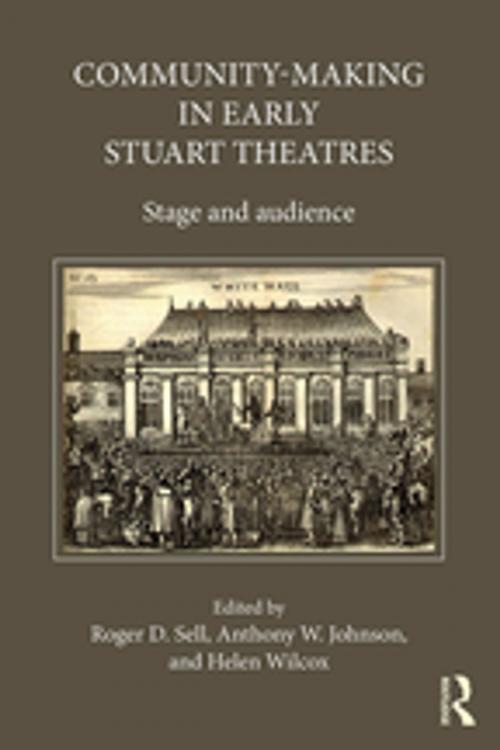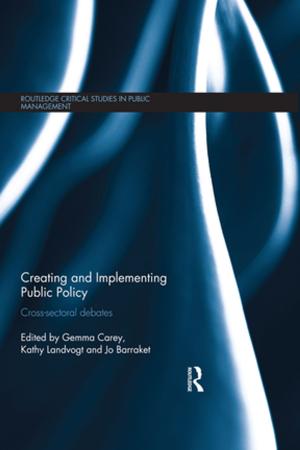Community-Making in Early Stuart Theatres
Stage and audience
Fiction & Literature, Literary Theory & Criticism| Author: | ISBN: | 9781317163299 | |
| Publisher: | Taylor and Francis | Publication: | October 14, 2016 |
| Imprint: | Routledge | Language: | English |
| Author: | |
| ISBN: | 9781317163299 |
| Publisher: | Taylor and Francis |
| Publication: | October 14, 2016 |
| Imprint: | Routledge |
| Language: | English |
Twenty-two leading experts on early modern drama collaborate in this volume
to explore three closely interconnected research questions. To what extent did
playwrights represent dramatis personae in their entertainments as forming, or
failing to form, communal groupings? How far were theatrical productions likely
to weld, or separate, different communal groupings within their target audiences?
And how might such bondings or oppositions among spectators have tallied with
the community-making or -breaking on stage? Chapters in Part One respond to
one or more of these questions by reassessing general period trends in censorship,
theatre attendance, forms of patronage, playwrights’ professional and linguistic
networks, their use of music, and their handling of ethical controversies.
In Part Two, responses arise from detailed re-examinations of particular plays
by Shakespeare, Chapman, Jonson, Beaumont and Fletcher, Cary, Webster, Middleton,
Massinger, Ford, and Shirley. Both Parts cover a full range of early-Stuart
theatre settings, from the public and popular to the more private circumstances
of hall playhouses, court masques, women’s drama, country-house theatricals,
and school plays. And one overall finding is that, although playwrights frequently
staged or alluded to communal conflict, they seldom exacerbated such divisiveness
within their audience. Rather, they tended toward more tactful modes of
address (sometimes even acknowledging their own ideological uncertainties) so
that, at least for the duration of a play, their audiences could be a community
within which internal rifts were openly brought into dialogue.
Twenty-two leading experts on early modern drama collaborate in this volume
to explore three closely interconnected research questions. To what extent did
playwrights represent dramatis personae in their entertainments as forming, or
failing to form, communal groupings? How far were theatrical productions likely
to weld, or separate, different communal groupings within their target audiences?
And how might such bondings or oppositions among spectators have tallied with
the community-making or -breaking on stage? Chapters in Part One respond to
one or more of these questions by reassessing general period trends in censorship,
theatre attendance, forms of patronage, playwrights’ professional and linguistic
networks, their use of music, and their handling of ethical controversies.
In Part Two, responses arise from detailed re-examinations of particular plays
by Shakespeare, Chapman, Jonson, Beaumont and Fletcher, Cary, Webster, Middleton,
Massinger, Ford, and Shirley. Both Parts cover a full range of early-Stuart
theatre settings, from the public and popular to the more private circumstances
of hall playhouses, court masques, women’s drama, country-house theatricals,
and school plays. And one overall finding is that, although playwrights frequently
staged or alluded to communal conflict, they seldom exacerbated such divisiveness
within their audience. Rather, they tended toward more tactful modes of
address (sometimes even acknowledging their own ideological uncertainties) so
that, at least for the duration of a play, their audiences could be a community
within which internal rifts were openly brought into dialogue.















